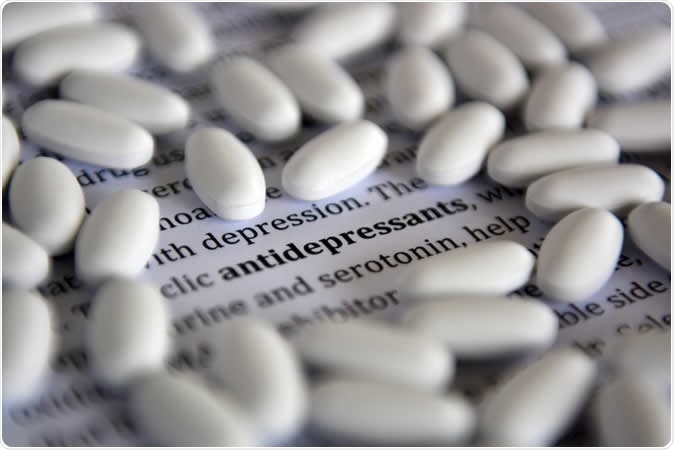NHS figures reveal that over the last ten years, the number of prescriptions for antidepressants has doubled. There has also been a rise in the drugs prescribed for conditions resulting from unhealthy lifestyle behaviours.

Image Credit: Lea Rojec / Shutterstock
Over last one year, the NHS Digital figures reveal, there have been 1.1 billion drug prescriptions from the health service excluding prescriptions from hospitals and private doctors. The Health Secretary has started an exercise on reviewing the prescription drugs after warnings that each individual is being given out an average of 20 prescriptions per year.
According to health experts, modern lifestyle and political uncertainties have made a significant on health of the population leading to these jumps in prescriptions. Last year for example there have been 70.9 million prescriptions for antidepressant drugs. This is a rise from 36 million in 2008 - a decade back. The commonest prescription antidepressants in UK last year were Sertraline, citalopram and amitriptyline with a total of 42.4 million prescriptions of them. Sertraline hydrochloride prescriptions rose seven times over the last decade - from 2.1m to 14.8m.
There have been 55 million prescriptions for diabetes and the rise is 69 per cent in the past ten years. The cost of diabetes management has risen by over £1bn. Similarly statin prescriptions for raised blood cholesterol has also risen by 43 percent over the last decade. This alarming rise in type 2 diabetes and raised cholesterol is a direct result of obesity which is a result of unhealthy diet, sedentary life and other lifestyle behaviours associated with modern life.
The total cost of dispensed prescriptions has decreased by 3.7 percent in 2018 from the year before (£9.2 billion in 2017 and £8.8 billion in 2018). The number of items on the prescription has risen by 0.3 percent from the 1.1 billion in 2017. The low value over-the-counter medications (such as paracetamol and cough mixtures) have not been prescribed since 2017 so as to save millions of pounds of the NHS money.
Vicki Nash, Head of Policy at mental health charity Mind reiterated the findings saying that more people with mental health problems are seeking help these days that that too has contributed to the raised numbers. She said, “We currently live in turbulent times and the impact of Brexit on the nation’s mental health is hard to measure. We know political and world events can create a great deal of uncertainty, which can make some of us feel anxious, stressed and down.” Dr Antonis Kousoulis, associate director of the Mental Health Foundation added that more people are reaching out for help and said that although not proven, Brexit was a reason for anxiety, depression and stress among the population as seen in their surveys.
Marjorie Wallace, chief executive of the mental health charity SANE agreed that more and more people are reaching out for help through their help-lines. Wallace added, “Some of the rise may be due to more people feeling unsafe and uncertain due to social and political change, the impact of social media and fragmentation of relationships with family, friends and the wider community.”
Professor Wendy Burn, president of the Royal College of Psychiatrists said, “For many people antidepressants can be lifesaving, but they should not be the ‘go-to’ for first instances of mild depression. The National Institute for Clinical Excellence recommends only using antidepressants with patients who have moderate to severe depression or for patients whose depression lasts for a long time. We need to ensure there is investment in alternative treatments such as talking therapies, and more research into the most effective ways of helping all patients suffering from a mental illness.”
Professor Helen Stokes-Lampard, chairwoman of the Royal College of GPs, in a statement said, “Prescribing is a core skill for GPs, and we will only prescribe medication to a patient after a full and frank discussion with them, considering their unique circumstances, and if we genuinely believe they will be of benefit to their patient.” She was speaking on sprecription of antidepressants.
Douglas Twenefour, deputy head of care at Diabetes UK warned that diabetes cost the NHS around £10bn and the number of patients are ever increasing. Tam Fry, from the National Obesity Forum also added that obesity was soon becoming an epidemic.
An NHS England spokesman in a statement said, “While antidepressants play an important role for some patients, an attitude of 'a pill for every ill' can mean not only do some people end up taking medicine they don't need to, but taxpayer funding is spent on avoidable prescriptions. This is why the NHS is rolling out alternatives to medication, like 1,000 social prescribing link workers giving people care and advice tailored to their condition and, for mental health issues, the world's most ambitious programme of talking therapies which can resolve common conditions like depression and anxiety.”